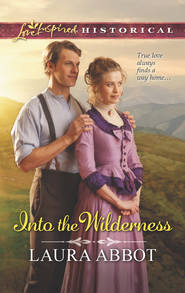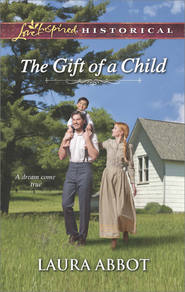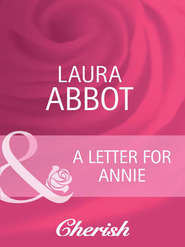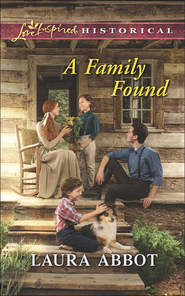По всем вопросам обращайтесь на: info@litportal.ru
(©) 2003-2024.
✖
Stranger at the Door
Автор
Год написания книги
2019
Настройки чтения
Размер шрифта
Высота строк
Поля
Now I know how to begin.
Springbranch, Louisiana
1945
THE PEALING CHURCH BELLS and deafening staccato of firecrackers mark the event forever in my memory. My scholarly father scooped me into his arms and danced me up and down the sidewalk among throngs of neighbors spilling from their houses. “The Japanese have surrendered,” he shouted. “Praise the Lord, the war is over!” Then cradling me close, he whispered for my ear alone. “Remember this day always, Isabel. Freedom has prevailed.”
I didn’t know what prevailed meant, but I understood something momentous had happened.
I can still picture the tear-stained face of Mrs. Ledoux, whose son was on a ship somewhere in the Pacific, and hear the pop of the champagne cork from Old Man Culpepper’s front porch. Small boys beat tattoos on improvised drums and grown men waved flags semaphore-style over their heads.
I was six and had no memory of a time before rationing, savings stamps and victory gardens. When the family gathered around the radio listening to news from the front, even though I couldn’t grasp much, I knew “our boys” were heroes. But the freedom my daddy talked about was a puzzling concept. Looking back, I realize how far from harm’s way we were in the small, backwater town in north central Louisiana.
That night Grandmama Phillips, my mother’s mother, led me into her upstairs bedroom. After Grandpapa died, she came to live with us and brought an astonishing array of antique furniture, including a china closet, a Victrola, two rockers and a canopy bed. Her room was an exotic sanctuary for me, smelling of Evening in Paris cologne, peppermint drops and patchouli incense.
Sleepy after the V-J Day celebration, I crawled onto my grandmother’s lap and nestled against her bosom. “Ma petite Isabel, this is a joyous end to long, troubling years. I have something special to give you to remember this day. A token to remind you how every once in a while, things turn out exactly as they should.”
Reaching into the pocket of her flowered smock, she brought forth the odd-looking figurine that I’d seen sitting in the china cabinet among her collection of delicate teacups and saucers. Smiling beatifically, as if giving me a gift of great worth, Grandmama placed the grayish statuette in my small, cupped hands. The contours of the Buddha-esque body felt cool and soothing, and I giggled when I gazed at the face, bearing an elfin grin as if he and I shared a delicious secret. “What is it, Grandmama?”
“A billiken. My father brought this to me in 1909 after a trip to Missouri.” She ran a finger over the billiken’s head. “He’s an extraordinary little god.” Then, taking him from me, she upended him. On the bottom was a circular brass plaque with an inscription around the circumference. “Can you read this, Bel?”
I screwed up my face and studied the words. She took over for me. “‘The god of things as they ought to be.’” She chuckled. “No wonder he’s smiling, ma chère. Today is one of those rare times when things are, indeed, exactly as they ought to be.”
I fell asleep clutching the billiken, secure in the knowledge that I was safe, the world was at peace and things truly were as God intended.
LET ME TELL YOU more about my family. I was an only child, doted upon by the three adults in the home. Sometimes I wonder if their attention to me wasn’t, in part, a means of buffering themselves from one another.
Daddy was a short, chubby man who wore thick glasses and taught English literature at the local college. In a household of females, his study was his haven, and he retreated there most evenings to prepare lessons or grade papers. My mother deferred to him, but with ill-concealed martyrdom, as if she were silently screaming, “I made my bed, and now I will lie in it.”
Grandmama, ever the romantic, amused herself by listening to radio soap operas. When I stayed home from school sick, she would bring me into her bedroom where we would snuggle under her comforter, breathless for the latest adventures of Helen Trent or “Our Gal Sunday.” My grandmother admired swashbuckling rogues of the Rhett Butler mold. Occasionally she would mutter things like, “Your daddy just needs to stand his ground with Renie” or, referring to one of the soap opera idols, “Now, there’s a man for you—he’s out in the world doing something.” Young as I was, I knew what had been left unsaid. “Unlike your father.”
In retrospect, I see she was preparing me for my own Clark Gable, spinning romantic notions of the day my personal knight in shining armor would appear.
I loved Grandmama dearly, but I wished she saw in Daddy what I did—a courtly and gentle man who made me his intellectual companion and in whose eyes I could do no wrong. And what of his interior life? Did he regret marrying my mother, or, in his own way, did he care for her? Had he ever harbored other—different—aspirations? Amazingly, I never heard him utter regrets or say an unkind word about either Mother or Grandmama.
Irene Phillips Ashmore. My mother. It’s hard, even now, to imagine she was Grandmama’s daughter. There wasn’t a romantic bone in her body. Businesslike, practical and fixated on propriety, she was the engine that kept the household machine running smoothly.
She found fulfillment in the Women’s Club of Springbranch. No one ever worked harder to be accepted in society, or what passed for it in our community, than my mother.
And who was expected to be the living embodiment of her social ambitions? Her daughter. Me. Isabel Irene Ashmore.
Springbranch, Louisiana
Early 1950s
POSTWAR SPRINGBRANCH WAS a place of promise. A development of starter ranch homes sprouted in the field beyond the water tower, new model automobiles replaced prewar coupes and sedans, and enrollment at the college reflected the popularity of the G.I. Bill.
My mother’s postwar efforts were directed toward transforming her gangly adolescent daughter into a lady. Not just any lady, mind you, but a genteel Southern lady. Posture: “Isabel Irene Ashmore, stand up straight.” Etiquette: “I didn’t hear you say ma’am.” Table manners: “My dear, a lady never talks with her mouth full.”
I dreaded most her advice concerning boys, whom she referred to as beaux. “Flirt, Isabel. Bat those pretty brown eyes.” I had little interest in the pimply-faced males in my class at Springbranch Elementary School. The idea of flirting with them was humiliating.
Mother meant well, but I always believed I fell short of her expectations. Even though she is long dead, I don’t remember ever experiencing unconditional love from her. Maybe she had to be the way she was. Daddy was lost in his books and Grandmama filled my head with fairy tales. Somebody had to take me in hand.
Throughout my girlhood, I did my best to please her. Every Sunday I wore a hat and gloves to St. John’s Episcopal Church. I didn’t use slang expressions, and I always changed out of my school dress before going outside to play. I even practiced the piano the requisite half hour a day.
Not surprisingly, I liked school—the wooden desks lined up in neat rows, the dulcet tones of teachers’ voices, the sense of accomplishment in winning a spelling bee. I tried very hard to be what others referred to as “a good girl.”
In sixth grade Twink came into my life. School started right after Labor Day and standing just inside Miss Vinnie’s classroom was a strange girl, covered with freckles and sporting a wild mop of carrot-colored curls. Never had I seen such green eyes. She was a leprechaun come to life, and I loved her from that first moment.
“Hi.” She took a step forward. “This is my first day.”
“I know,” I said. “What’s your name?”
“Twink Montgomery.”
“Twink?”
She scowled, daring me to laugh. “Aurelia Mae Starr Montgomery. How would you like it if people called you Aurelia Mae?” She strung out each syllable in challenge.
“I wouldn’t, I guess.” In fact, I wasn’t crazy about my mother calling me Isabel Irene. From that first meeting with Twink, I longed for a nickname. “I’m Isabel Ashmore.”
“Isabel.” She rolled the name around on her tongue. “That’s not as bad as Aurelia. Close, though.”
We burst into a fit of giggles, the first of many.
When I told Mother about my new friend, she was horrified. “Twink? What kind of name is that? What are her people thinking? Why, why—” she sputtered “—it’s almost as bad as someone referring to you as Izzy!”
Izzy. Now there was a nickname! From the beginning, I liked it, but I knew Mother would swoon if she ever heard anybody call me that. Twink often used it when we were alone, but was careful not to slip in front of Mother.
Something weird happened the next year. Boys started paying attention to Twink and me. Not in a smooth-talking, Tab Hunter manner, but awkwardly, fumblingly.
Then, over the summer, to my horror, my breasts started budding. Mother and Grandmama simpered about how wonderful it was that I was “developing.” I hated that word. It conjured images of being sent, like a roll of film, to the Kodak camera shop for some mysterious metamorphosis.
Those times seem pretty tame now. As a naive thirteen-year-old I had never heard of condoms, wet dreams or oral sex. My goodness, finding out about menstruation had about done me in.
Oh, I started to write about Twink and me. She was still straight as a stick, but didn’t have any qualms when it came to talking to boys, whereas I became virtually tongue-tied.
This brings me to the Springbranch Cotillion—a tradition as established as sweetened ice tea. Held in the parish hall of the Episcopal church and sponsored by the Springbranch Women’s Club, the Cotillion was a series of ballroom dancing classes for eighth graders from the “best” families.
Every other Tuesday evening, dressed in our taffeta dresses and black ballet slippers, we girls were dropped off at the church where we suffered under the tutelage of Mrs. Collins Wentworth, self-proclaimed grande dame of local society.
Our very first night, Twink sailed toward the boys, dragging me reluctantly in her wake. Dressed in ill-fitting suits, shirts and even bow ties, they looked nothing like they did at school. When the boys averted their eyes and shuffled their feet, I realized they were no more enthusiastic than I was about the upcoming ordeal.
Mrs. Wentworth, clapping her hands over her head, sashayed to the center of the floor. “Please number off for partners.” My eleven was matched by Laidslaw Grosbeak’s. Yes, that was actually his name, and it suited him, because his thin, sallow face was overwhelmed by a long, aquiline nose. I towered over him. In memory, I can still smell the combination of his Juicy Fruit gum and Brylcreem hair tonic.
Twink shot a triumphant smile over Jimmy Comstock’s back. With the luck of the Irish, she had snagged the man of our dreams. After the briefest instruction, they were actually waltzing, while Laidslaw and I were still stumping in one place, eyes fixed on our uncooperative feet.
The Grand March mercifully brought an end to the evening. Two by two and then four by four, we circled the room and then were dismissed into the humid Louisiana night.











